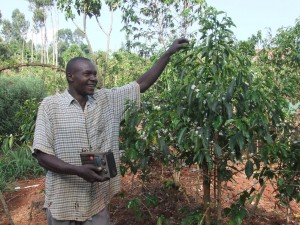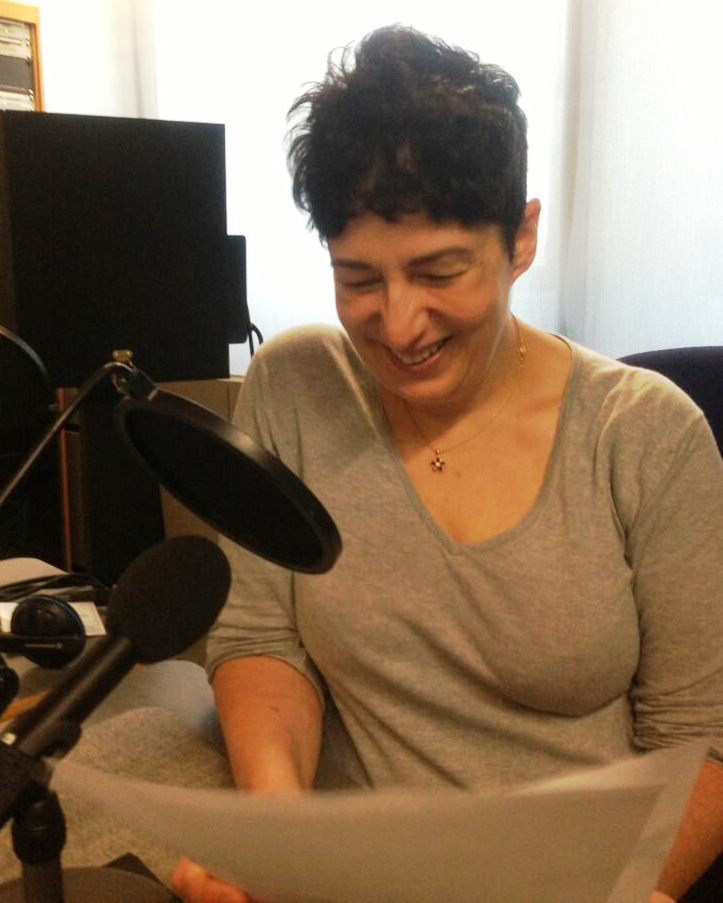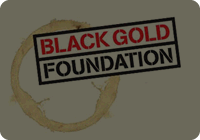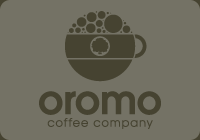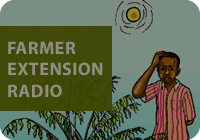Categories
Recent Posts
Farmer Extension Radio for African Smallholders
08/08/2013 – 12:05 am
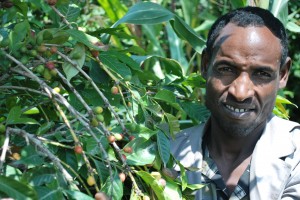 Our farmer extension radio programme has provided a source of information and connections for farmers across Africa. This unique programme uses a multi-pronged approach. Through the medium of African radio and SMS (text messaging) we reach millions of poor smallholders with the information that they desperately need in order to manage their crops effectively.
Our farmer extension radio programme has provided a source of information and connections for farmers across Africa. This unique programme uses a multi-pronged approach. Through the medium of African radio and SMS (text messaging) we reach millions of poor smallholders with the information that they desperately need in order to manage their crops effectively.
The farmers ‘set the questions’ for our radio programme and the LYF provides them with access to answers from experts in the field. We also work in partnership with African educational institutions matching them together as peers so that in-country capacity is built and the necessary business education is provided for smallholders, rather than flying in ‘experts’ from the North.
Our first ‘Farmer Radio’ programme in Kenya was named Dhahabu Ya Murimi (meaning ‘Farmer’s Gold) and reaches around 4.5 million people (half a million coffee farmers.) Working with coffee farmers in Kenya and Ethiopia and now with women cocoa growers in the Democratic Republic of Congo (DRC) we want to roll out and replicate its success throughout the developing world.
Through our ‘Peer Partnering’ scheme we want to build on our work with local partners Ambo College in Ethiopia and Nyeri Technical Training Institute (NTTI) in Kenya. To date, the programme transfers Ambo’s knowledge and experience of working with smallholders to the NTTI, enabling the NTTI to then train their own staff to work with local smallholder producer organisations in Nyeri. This approach delivers real independence, opens up market access and creates sustainable local capacity in a cost-effective manner as it builds on the skills, knowledge and infrastructure already widely available in East Africa.
Most recently we have also created the new Farmer Extension Website, specially created for ease of access to smallholder organisations in Africa. This is a tool that provides support to smallholders and their organisations. Through it, farmers can access relevant and timely information on radio broadcasts, weather reports and crop prices. We are also thrilled with our new beautifully illustrated training manuals for smallholders – which provide important information about co-op governance, ethical trade, supply chains and marketing. We have also created specially designed picture books on crop cultivation which can be used by smallholders with little/no literacy skills. Our new Farmer Extension website is here www.farmer-extension.org.
Our site also enables farmers to access Visual Weather Forecasts: These are weather maps using live data from NOAA servers in the USA (National Oceanic and Atmospheric Organisation). Our partners at Theyr, will prepare the data for visualisation so that weather maps can be seen live by producers globally. These maps provide 6 days of forecast data updated every 12 hours, providing multiple parameters of air pressure, rainfall, temperature, wind.
To find out more about the impacts of LYF’s work so far in Kenya please see here. But our Farmer Extension Radio approach can work outside of African countries too! Our aim is to build a network of local organisations working towards a common purpose – to strengthen smallholder producer organisations, lifting their farmer members out of poverty.
LYF’s Farmer Radio in Kenya – Delivering Results!
26/07/2013 – 9:43 pm
The LYF has been broadcasting weekly farmer radio programmes since Autumn 2011. The radio programmes are delivering a significant impact. For example, smallholder farmers have already changed some of their practices in the cooperatives where the Farmer Field Listening Groups are operating – as a direct result of the farmer extension radio programmes.
The first programmes covered the issue of the Coffee Calendar, Coffee Crop Varieties, Yields, Weather and Pest Resistant Crops. The programmes receive atleast 20 SMS messages after each broadcast. Most of the SMS asked about the Batian variety of coffee which was being marketed by the Coffee Research Institute (CRI) – a variety which is supposed to produce greater yields, better quality and which is pest and disease resistant – particularly in relation to Coffee Berry Disease and leaf rust. As a result of the content of the SMS messages received, we decided to re-schedule the broadcast and instead, prioritise an interview with the Director of the Coffee Research Institute which would focus on the Batian coffee variety.
Immediately following this interview, the demand for Batian coffee at the CRI became so high that the CRI is now currently unable to meet the demand and has run out of seedlings altogether. Both of the coffee co-operatives involved in the Farmer Field Listening Groups also bought seedlings, which they are selling to the farmers via a credit facility. As a result, there have been notable changes in practices in the two cooperatives. These are:
Planting of the new Batian variety:
The Gikanda cooperative has purchased 2000 Batian trees and these are being planted by 50 farmers, with a further 8000 more being ordered. Rumukia cooperative has planted 30,000 batian trees and has ordered a further 30,000 trees. Due to these incredible increases it is anticipated that this will lead to higher yields and greater levels of resistance to disease and pests as a result.
An Increase in FEMALE Member Enrolment at both Cooperatives:
One of the key objectives behind the SSN was to increase the number of women smallholders represented within the cooperatives (the LYF’s work to empower women in this way was recently recognised by the Bill and Melinda Gates Foundation who chose the SSN as a case study of good practice in this area). Following the radio broadcasts, there have been excellent achievements in this area with;
Gikanda Co-operative welcoming 205 new farmers for the last year – of which 103 are women.
Rumukia Co-operative welcoming 500 new members during the last year – of which 250 are women
A Marked Increase in Production at both Cooperatives
At Gikanda cooperative, production figures for the last financial year were 1 million Kgs of coffee. For this financial year, the figure has increased to 2.7 million Kgs.
Rumukia cooperative produced 1.2 million Kgs for the last financial year and this year has reported that it has reached 3.7 million Kgs.
Given that these remarkable achievements cannot be correlated solely by the increase in membership, the figures do point to an increase in production amongst existing members. It further suggests that greater transparency on pricing (i.e. pricing information is now being broadcast via the radio programmes) is leading to more smallholders wishing to become members of those cooperatives which are actively engaged in the farmer extension project.
An Increase in Income for Smallholders
Coffee Management Services (CMS) which markets 34% of all coffee produced in Kenya – have confirmed to the LYF that as a direct result of the radio/ SMS initiative, the organisation has received an increase in interest in coffee farming, more coffee seedlings planting (of the Batian Variety), improvement in the implementation of Good Agricultural Practices, increased agro-input use in order to realise increased production and a visible increase in smallholder desire for better governance within the cooperatives. The information supplied from CMS has been further corroborated by statistics which the LYF has received from both Gikanda and Rumukia cooperatives which confirms that a marked increase in income for smallholders should be seen as a direct result of (increase productivity and volumes).
But of course, we must stress that these are just the outcomes achieved by only TWO of the cooperatives in the region, that the LYF has chosen as ‘pilot Listeners’. Our aggregate achievements therefore – for all smallholders in the area must be magnified…thanks to the outreach capability we have harnessed via Coro FM…
To summarise, these achievements in such a short space of time – from our analysis of the project to date – it seems that in particular, the programme has directly led to:
Improved practices on the use of resistant varieties such as Batian by the farmers. This will reduce the cost of their production and use of fungicides and pesticides (a clear cash saving for the farmers)
Better education about, understanding, use and choice of Agro-Inputs (NB Agro-Inputs are items that are added to the ‘growing process’ – such as fertilisers and pesticides etc) This will lead to overall increased production of crops in the longer term.
Increased quality as a result of better use of Agro-Inputs. Although there is an 18 month lead time from intervention to seeing the results in terms of crop yield – the programme will accelerate much better quality in crop yield – in the longer term
Improved coffee processing at the wet mill level – leading to a better cup
Improved Cooperative Society efficiency as smallholders have learned to ask more searching and better informed questions of the cooperative leaders(in relation to costings, pricing etc.)
Demand for training from other coffee cooperatives beyond the Rumukia and Gikanda Farmer Field Listening Groups. The LYF has been informed that other coffee co-operatives in the region have been inundated with demand for information since the SSN Radio Broadcasts. We have been reliably informed that on aggregate, the other coffee cooperatives in the area have had to hire a further 8 agricultural extension field staff in order to meet the demand for coffee marketing, pricing and overall industry knowledge.
LYF Radio 4 Appeal Broadcasting 28 July
26/07/2013 – 4:46 pm
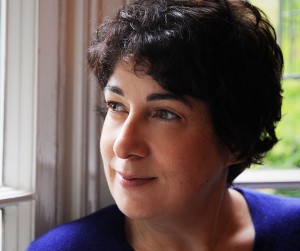 BBC Radio 4 is broadcasting an appeal on behalf of the Lorna Young Foundation. Voiced by award-winning author, Joanne Harris, it will be broadcast on Sunday 28 July at 07.55 and 21.25, and again on Thursday 1st August at 15.25. We will also publish a link to the podcast of the appeal following the live broadcasts. To find out more about the LYF appeal you can visit the BBC Radio 4 Appeal website here.
BBC Radio 4 is broadcasting an appeal on behalf of the Lorna Young Foundation. Voiced by award-winning author, Joanne Harris, it will be broadcast on Sunday 28 July at 07.55 and 21.25, and again on Thursday 1st August at 15.25. We will also publish a link to the podcast of the appeal following the live broadcasts. To find out more about the LYF appeal you can visit the BBC Radio 4 Appeal website here.
Chocolat Author, Joanne Harris on Championing the LYF
03/07/2013 – 11:55 am
Renowned author, Joanne Harris is supporting the LYF in our latest fundraising campaign to expand our Farmer Radio service in Africa.
Joanne Harris MBE, award-winning novelist has recorded a BBC Radio 4 Appeal message for the LYF. Joanne, writer of critically acclaimed adult fiction (such as ‘Chocolat’) and children’s books (such as ‘Runelight’) has always focussed her work and interest on international development issues and is passionate about trade justice.
In this short audio clip, Joanne explains why she decided to support the Lorna Young Foundation. Her appeal on our behalf will be broadcast on BBC Radio 4 on Sunday July 28 at 07.55 and 21.25, and again on Thursday 1st August at 15.25.
In this short audio clip, Joanne explains why she decided to support the Lorna Young Foundation. R4Appeal_wk31_joanne harris_LYF
LYF DRC Farmer Radio Featured in Yorkshire Post
24/01/2013 – 8:01 pm
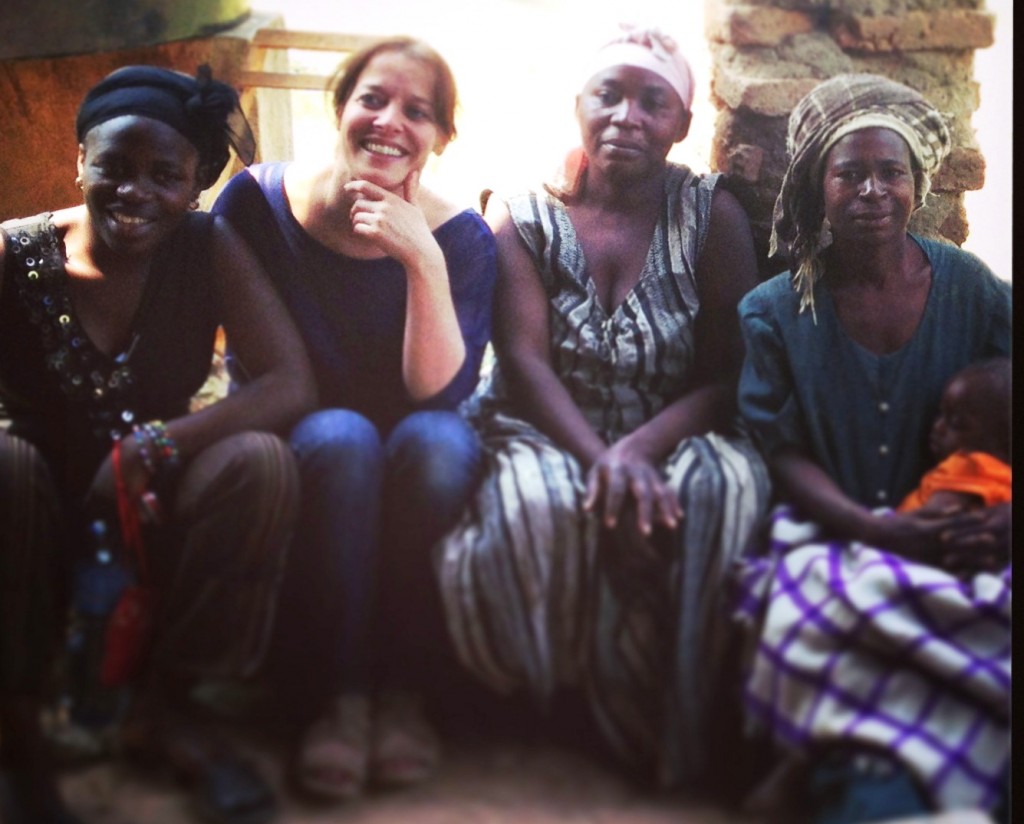 Chocolate making life sweeter for poor women in a forest war zone
Chocolate making life sweeter for poor women in a forest war zone
Published in the Yorkshire Post on Monday 14 January 2013 10:18
Marie-Claire Kid looks at one organisation helping to lift people out of poverty in Africa, all from a Yorkshire house.
Cristina Talens sits in Bettys Tea Rooms in her hometown Harrogate, sipping ethically traded coffee and talking about her recent trip to Africa.She is familiar with both places. For seven years she was Bettys and Taylors’ ethical trading manager, and she has been working with African farmers for over a decade.
These days Cristina is head of smallholder support for another Yorkshire institution, the Lorna Young Foundation, named after the co-founder of fair trade co-op Equal Exchange and coffee brand Cafedirect, who died in 1996 aged just 44.
From its headquarters in an unassuming house in the village of Netherton, near Huddersfield, this ethical trade charity helps smallholders in developing countries build their businesses and lift themselves out of poverty. It exists on a thrifty Yorkshire shoestring, run by paid homeworkers across the county and volunteers worldwide.
“We’re a very understated charity,” says Cristina.
“We’re practical and hands on. We don’t work through large administrative organisations that make things hard to get off the ground, we have a network of scientists and development experts, and we hardly have overheads.”
As the tourists and ladies that lunch queue for ethically traded tea, coffee and chocolate, Cristina enthuses about the foundation’s latest project; a bid to address deforestation and poverty in one of the most war torn corners of the world.
North Kivu, in the eastern Democratic Republic of Congo, is famous for Virunga National Park and endangered mountain gorillas. Sadly, it is perhaps better known for the wars that have raged here since 1998.
The United Nations says this is one the most dangerous places to be a woman. Here, sexual violence is used as a weapon and to split communities.
Aid agencies have been pulling out of the area since September, when the conflict escalated once again. In the past few months, the foundation has been conducting its operations in the Congo from neighbouring Uganda.
“The conflict is continually displacing communities and the area is being deforested at an alarming rate,” says Cristina. “Working in the DRC is challenging, but we have to carry on. It’s people’s livelihoods.”
Since July 2012, Cristina has been working with women’s co-operatives in North Kivu and Dutch chocolatier Original Beans to produce chocolate worthy of Michelin starred restaurants.
For decades poverty-driven subsistence farming has led to slash and burn agriculture in mature rainforest around Virunga. Cocoa, which can be grown in the forest without destroying it, offers local farmers a way to earn a living without degrading the environment.
DRC currently only produces about 10,000 tonnes of cocoa a year, but what it produces is generally of high quality. The female co-ops in North Kivu produce about 2,000 tonnes a year.
Original Beans uses their cocoa to make Cru Virunga, an organic dark chocolate described as deeply chocolaty and zingy with ripe morello cherries, smokey tobacco and a soft, warm, African finish.
The chocolate has been embraced by chefs at restaurants including The Ivy and Le Caprice and features in products by chocolatier Damian Allsop.
For every £3.50 bar, cocoa farmers plant a tree that can be tracked on Original Beans’ website.
“This isn’t a mainstream market,” says Cristina. “We’re creating a high quality product, and we’re paying farmers in the co-ops to mitigate the impact of deforestation and climate change.”
The scheme offers a high price for cocoa beans, but to qualify cocoa must be produced on land that is not cleared, and local trees must be planted too. To feed their families, the women use an agro-forestry model, growing local crops like cassava and banana, which do not degrade the forest, alongside cocoa.
Supported by DfID’s Food and Retail Industry Challenge Fund, the LYF is enabling women from two of the co-ops to help others through local radio.
Cristina explains: “One of the biggest problems facing co-operative members is lack of information and training.”
Not Just a Community Enterprise began in 2009 with a group of youngsters in Huddersfield. With support from DfID’s Development Awareness Fund the LYF has also set up groups in Leeds and Doncaster.
Cristina, who also campaigns against slavery, says she realised conventional business was missing the human angle while studying business management at Leeds University.
“We learned about decentralising organisations, so that in adverse economic situations companies could cease operations and go somewhere else,” she says. “Most companies wouldn’t go near North Kivu.
“Ethical trade enables people to earn a living and protect their environment. It’s about having that awareness that things aren’t always that easy.”
Reaching out on the airwaves
Working with the Co-operative College, the foundation has used radio in Kenya, where it works with co-operatives including Gikanda and Rumukia.
“In Kenya, Farmers Gold or Dhahabu Ya Murimi as it’s known locally has an audience of over 4.5 million people,” Cristina says.
“We’re already seeing farmers changing land practices as a result; adopting more resilient varieties of coffee trees, which are drought resistant and produce better yields.”
LYF Launches DFID FRICH Project with 10,000 Women Farmers in DRC
24/10/2012 – 9:25 pm
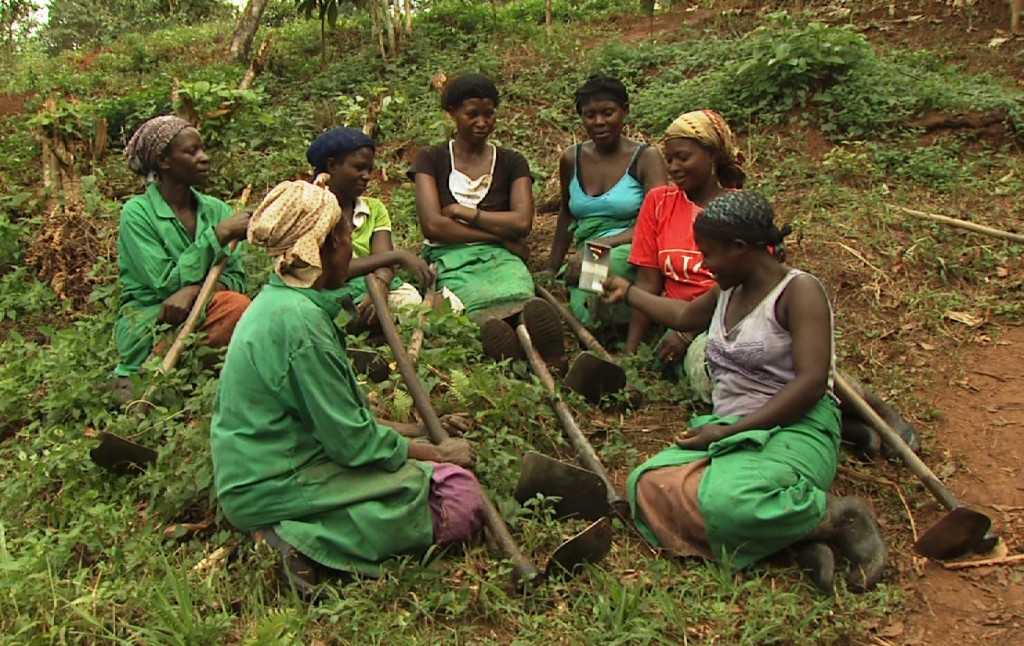 Launch of our Dfid Project with 10,000 women cocoa farmers in North Kivu, We meet the dynamic team from DRC who will be running the radio shows for farmers
Launch of our Dfid Project with 10,000 women cocoa farmers in North Kivu, We meet the dynamic team from DRC who will be running the radio shows for farmers
Our project with original beans was launched at the end of July 2012 and Cristina and Joseph began to plan their trip to the DRC
to deliver training to local partners on radio, SMS and multi-stakeholder platforms. Unfortunately the months of August and September 2012 proved to be a challenge for travel into the region, as security around the North and East of the DRC became a major problem. The M23 increased its presence around Goma and near the towns of Bunangana, Rutshuru, Rumangabo, Ntamugenga, Kiwanja and Rugari resulting in an increase in violent incidents in these locations. UN troops were relocated to those areas leaving the rest of the East DRC out of control. The result was a power vacuum and smaller insurgencies in the parts north of Goma. In the meantime, refugees continued to cross over the border from Uganda on the Kasese Side (Kasindi) and local partners
ASADI reported worrying signs of insecurity at the border crossings, where Maji-maji rebels (or others) were seemingly taking over in areas where a power vacuum existed.
Whilst Kagame, Kabila and Museveni held a meeting in Kampala to look for a solution for the M23. We began to look at the options for delivering training for the IDAD team in Uganda. Fortunately we were able to organise for training to take place in Kagadi (within 80 Km of the DRC border) at the college facilities of the Uganda Rural Development and Training Programme URDT. This institution offers free primary and secondary education for talented girls from poor rural areas. It is also home to the African Rural University (ARU), the first non-denominational all women’s university focusing on developing visionary women leaders in Africa.
It is here that we met agricultural extension team from IDAD (Initiative pour le Developpement d’Agroforesterie Durable) and
female journalists from Radio Graben, who will be working closely together to deliver agricultural extension in North Kivu. We spent 4 days training the team to:
a) Create a farmer field listening group
b) Developing the radio agenda and content
with farmer field groups
c) Delivering agricultural extension
using radio and SMS
d) Developing a programme for 6 months in
line with agricultural calendar
e) Enhancing the style and approach over the radio
LYF Launches DRC Cocoa Partnership
23/07/2012 – 12:28 pm
 The Lorna Young Foundation (LYF), with our partner, the Award-winning gourmet chocolate and conservation brand Original Beans, is launching a ground-breaking new initiative with women cocoa farmers in one of the most conflict-torn areas of the Democratic Republic of Congo (DRC).
The Lorna Young Foundation (LYF), with our partner, the Award-winning gourmet chocolate and conservation brand Original Beans, is launching a ground-breaking new initiative with women cocoa farmers in one of the most conflict-torn areas of the Democratic Republic of Congo (DRC).
This new venture has been made possible following our successful joint application to the UK Government’s DFID, Food and Retail Industry Challenge Fund (FRICH).
The LYF will be working with Dutch chocolate company, Original Beans, to develop an eco-positive chocolate product with women cocoa farmers from North Kivu to address deforestation. The LYF will establish a radio, SMS, Multi-stakeholder platform on conservation cocoa, to deliver training and information to over 10,000 cocoa farmers in the area.
The project is located in Virunga National Park, situated in North Kivu, DRC, and registered as a protected area, biodiversity hotspot and World Heritage site. For decades, poverty, migration and deforestation around Virunga Park into North Kivu and Oriental Province have been entrapped in a vicious cycle. Movement of displaced populations and poverty-driven subsistence farming has led to rampant slash and burn of old-growth rain-forests.
This project aims to create the first eco-positive gourmet chocolate from the Democratic Republic of Congo, which addresses deforestation in Virunga Park and delivers poverty reduction through the production of high-quality cocoa.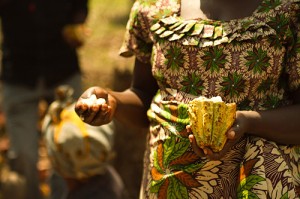
In the DRC, this project will establish a holistic model for reforestation activities and cocoa expansion in Mid and Northern parts of Virunga, adopting a REDD-like approach that uses GIS mapping-informed replanting, farmer enrolment programmes, nursery infrastructure and technical support and extension outreach to some 10,000 smallholder farmers using radio/SMS platforms. Locally, we will collaborate with conservation institutions to reduce deforestation rates in critical forest zones, by driving sustainable land management practices and incentivising quality cocoa production working closely with 2 women’s cooperatives in Virunga Park. This will improve farmer incomes, and slow the slash and burn cycle; the recognised most cost-effective measure against global climate-change.
KEY POINTS:
- This project will support local women’s cooperatives in Virunga Park to produce quality cocoa, undertake tree planting activities and improve land management practices, resulting in a higher value, eco-positive product which addresses deforestation.
- The project will deliver agricultural extension, cocoa market information and technical support to a targeted audience of 10,000 smallholders in the region, through the delivery of agricultural extension information, using radio, SMS and multi-stakeholder platforms.
- The content will be generated by female smallholders in two cooperatives, the information generated by the network is just as relevant for all smallholder farmers in the Virunga Park region.
About Original Beans
 Pursuing their mission ‘The Planet: Replant It’ Original Beans works in some of the ecologically richest, economically poorest regions in the world to produce chocolates found on the menus of Michelin starred restaurants. For every Original Beans bar consumers buy, local cocoa farmers plant one tree that can be tracked on www.originalbeans.com. Business Week has called Original Beans a company that is ‘making the world better through chocolate.’
Pursuing their mission ‘The Planet: Replant It’ Original Beans works in some of the ecologically richest, economically poorest regions in the world to produce chocolates found on the menus of Michelin starred restaurants. For every Original Beans bar consumers buy, local cocoa farmers plant one tree that can be tracked on www.originalbeans.com. Business Week has called Original Beans a company that is ‘making the world better through chocolate.’
Please Support the Smallholder Support Network!
12/03/2012 – 10:37 pm
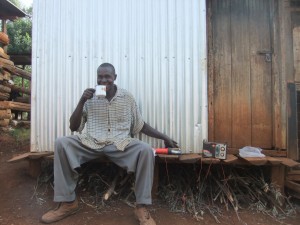 By any stretch of the imagination – the SSN has achieved phenomenal results (see our other recent blog posts) for a project that set out to work towards the empowerment of smallholders and to increase their sustainability and livelihood chances. But the successful ingredients of the SSN are even more impressive when the tiny budget and staffing levels of the LYF are taken into account. The LYF packs a powerful punch when it comes to ‘Operations Minus Overheads’ and it is proud of its ability to use funding imaginatively but sensibly and to keep as much money ‘in country’ as possible!
By any stretch of the imagination – the SSN has achieved phenomenal results (see our other recent blog posts) for a project that set out to work towards the empowerment of smallholders and to increase their sustainability and livelihood chances. But the successful ingredients of the SSN are even more impressive when the tiny budget and staffing levels of the LYF are taken into account. The LYF packs a powerful punch when it comes to ‘Operations Minus Overheads’ and it is proud of its ability to use funding imaginatively but sensibly and to keep as much money ‘in country’ as possible!
However, the funding for the Radio element of the SSN will end in April 2012 – so in order to ensure that this work of ‘entering the homes and lives of the smallholders’ continues – we need your help! The costs required to keep the Radio Broadcasts going for another year are pretty small and very simple….
Help – Innovate – Donate!
Just £400 per week will allow the LYF to continue to build on this incredible success in educating and transforming the lives and income levels of desperately poor smallholders! These costs directly relate to broadcasts within Kenya – but the wider work of the SSN is preparing to replicate itself across Africa and to all developing countries…
So, the £400 breaks down into…
- £250 air time (the broadcasting costs) and
- £150 for the Farmer Field Listening Groups and the costs for the research and content creation/ Extension Officer/Presenter costs.
SIMPLICITY and CREATIVITY has always been the keywords of the LYF….PLEASE think Simply and Creatively about how you can help the continuation of the SSN Radio Broadcasts!
For example:
How about opting to ‘Sponsor a Show’? (we can add your name or your organisation’s name to the LYF website and blog as ‘Sponsor of A Radio Broadcast’)
- Hold a Coffee Morning to raise funding for the SSN….
- Screen a showing of ‘Black Gold’ in your community….
- Run a Mini Marathon…..
- Have a Sponsored Coffee-Flavoured-Week…
- Clean out your junk – have a Car Boot Sale and provide a Free Coffee for every sale over £2.00….
Or if that is too much trouble – just make a simple donation!
We REALLY need your help to make good these incredible gains to date….!
We know through personal and professional experience that Radio Outreach is the Lifeblood of Africa. Please help us to refine this approach for smallholder empowerment.
It isn’t rocket science. This approach sprang from small-scale and cost-effective attitudes from people who have lived and worked in developing countries and who are vehemently FOR keeping money for foreign aid in the countries that need it the most. But most importantly of all – we can now show that this approach WORKS for the smallholder! The LYF now wants to replicate it across the developing world – but we can’t do this without your support and action!
If you can donate, please do so – and we would LOVE to mention you as a donor! Don’t hesitate to email us or to write to us to let us know how you have made a donation or raised money for the SSN. We need your stories and even your smallest actions keep us going…
For online donations go to www.lyf.org.uk/support-our-work
But we always love receiving letters, cheques or anything else cheery in the post. Cheques are payable to ‘The Lorna Young Foundation’ and you can find us at: The LYF, 47 Lea Lane, Netherton, Hudds, W Yorks, HD4 7DP. UK
LYF’s Smallholder Network – Delivering Tangible Results!
12/03/2012 – 10:27 pm
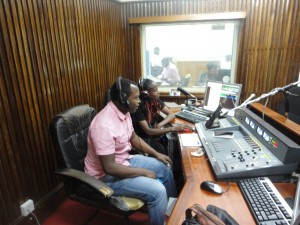 The LYF has now broadcast 27 weekly farmer radio programmes since Autumn 2011. The radio programmes are already demonstrating a significant impact. For example, smallholder farmers have already changed some of their practices in the cooperatives where the Farmer Field Listening Groups are operating – as a direct result of the SSN.
The LYF has now broadcast 27 weekly farmer radio programmes since Autumn 2011. The radio programmes are already demonstrating a significant impact. For example, smallholder farmers have already changed some of their practices in the cooperatives where the Farmer Field Listening Groups are operating – as a direct result of the SSN.
The first 2-4 programmes covered the issue of the Coffee Calendar, Coffee Crop Varieties, Yields, Weather and Pest Resistant Crops. The SSN receives atleast 20 SMS messages after each broadcast in those first few weeks. Most of the SMS asked about the Batian variety of coffee which was being marketed by the Coffee Research Institute (CRI) – a variety which is supposed to produce greater yields, better quality and which is pest and disease resistant – particularly in relation to Coffee Berry Disease and leaf rust. As a result of the content of the SMS messages received, the SSN decided to re-schedule the broadcast and instead, prioritise an interview with the Director of the Coffee Research Institute which would focus on the Batian coffee variety.
Immediately following this interview, the demand for Batian coffee at the CRI became so high that the CRI is now currently unable to meet the demand and has run out of seedlings altogether. Both of the coffee co-operatives involved in the Farmer Field Listening Groups also bought seedlings, which they are selling to the farmers via a credit facility. As a result, there have been notable changes in practices in the two cooperatives. These are:
Planting of the new Batian variety:
The Gikanda cooperative has purchased 2000 Batian trees and these are being planted by 50 farmers, with a further 8000 more being ordered. Rumukia cooperative has planted 30,000 batian trees and has ordered a further 30,000 trees. Due to these incredible increases it is anticipated that this will lead to higher yields and greater levels of resistance to disease and pests as a result.
An Increase in FEMALE Member Enrolment at both Cooperatives:
One of the key objectives behind the SSN was to increase the number of women smallholders represented within the cooperatives (the LYF’s work to empower women in this way was recently recognised by the Bill and Melinda Gates Foundation who chose the SSN as a case study of good practice in this area). Following the radio broadcasts, there have been excellent achievements in this area with;
- Gikanda welcoming 205 new farmers for the last year – of which 103 are women.
- Rumukia welcoming 500 new members during the last year – of which 250 are women
A Marked Increase in Production at both Cooperatives
At Gikanda cooperative, production figures for the last financial year were 1 million Kgs of coffee. For this financial year, the figure has increased to 2.7 million Kgs.
Rumukia cooperative produced 1.2 million Kgs for the last financial year and this year has reported that it has reached 3.7 million Kgs.
Given that these remarkable achievements cannot be correlated solely by the increase in membership, the figures do point to an increase in production amongst existing members. It further suggests that greater transparency on pricing (i.e. pricing information is now being broadcast via the radio programmes) is leading to more smallholders wishing to become members of those cooperatives which are actively engaged in the SSN project.
An Increase in Income for Smallholders
Coffee Management Services (CMS) which markets 34% of all coffee produced in Kenya – have confirmed to the LYF that as a direct result of the radio/ SMS initiative, the organisation has received an increase in interest in coffee farming, more coffee seedlings planting (of the Batian Variety), improvement in the implementation of Good Agricultural Practices, increased agro-input use in order to realise increased production and a visible increase in smallholder desire for better governance within the cooperatives. The information supplied from CMS has been further corroborated by statistics which the LYF has received from both Gikanda and Rumukia cooperatives which confirms that a marked increase in income for smallholders should be seen as a direct result of (increase productivity and volumes) before the end of Year 2.
But of course, we must stress that these are just the outcomes achieved by only TWO of the cooperatives in the region, that the LYF has chosen as ‘pilot Listeners’. Our aggregate achievements therefore – for all smallholders in the area must be magnified…thanks to the outreach capability we have harnessed via Coro FM…
To summarise, these remarkable achievements in such a small space of time – from LYF’s analysis of the SSN to date – it seems that in particular, the programme has directly led to:
- Improved practices on the use of resistant varieties such as Batian by the farmers. This will reduce the cost of their production and use of fungicides and pesticides (a clear cash saving for the farmers)
- Better education about, understanding, use and choice of Agro-Inputs (NB Agro-Inputs are items that are added to the ‘growing process’ – such as fertilisers and pesticides etc) This will lead to overall increased production of crops in the longer term.
- Increased quality as a result of better use of Agro-Inputs. Although there is an 18 month lead time from intervention to seeing the results in terms of crop yield – the programme will accelerate much better quality in crop yield – in the longer term
- Improved coffee processing at the wet mill level – leading to a better cup
- Improved Cooperative Society efficiency as smallholders have learned to ask more searching and better informed questions of the cooperative leaders(in relation to costings, pricing etc.)
- Demand for training from other coffee cooperatives beyond the Rumukia and Gikanda Farmer Field Listening Groups. The LYF has been informed that other coffee co-operatives in the region have been inundated with demand for information since the SSN Radio Broadcasts. We have been reliably informed that on aggregate, the other coffee cooperatives in the area have had to hire a further 8 agricultural extension field staff in order to meet the demand for coffee marketing, pricing and overall industry knowledge.

